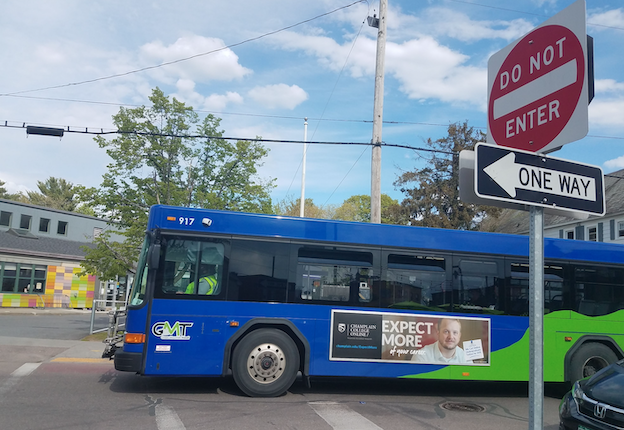VNRC is a member of the T4VT Coalition. The Coalition’s 2022 Priorities Include Access to Electric Vehicles, Supporting Downtowns, Sustainable Transportation Infrastructure, and Long-Term Transportation Funding.
Transportation for Vermonters (T4VT) recently released their policy agenda for the 2022 Vermont legislative session. T4VT is a diverse coalition of organizations, businesses and institutions committed to working together, creatively, and across sectors to achieve a sustainable, accessible transportation system in a rural state.
T4VT believes that bold investments in a sustainable and accessible transportation system can improve people’s quality of life, better serve historically marginalized and underserved communities, support the economic recovery we need, and shift us toward a cleaner transportation system that reduces our contribution to the climate crisis. With the passage of the Vermont Climate Action Plan, the on-going impacts of the COVID-19 pandemic, and unprecedented incoming federal funding, Vermont has a once-in-a-lifetime opportunity to make significant progress toward achieving the wide-ranging benefits of a sustainable transportation system.
We must expand transportation options to reduce dependence on single-occupancy, internal combustion vehicles and to better serve all Vermonters. To increase and improve multimodal mobility options, we must make substantial and sustained investment in a range of infrastructure and programs that support local action and accessible transportation alternatives. Alternatives include: active transportation (e.g. biking and walking); shared mobility (e.g. public transit and carshare); coordinated employer strategies to reduce automobile travel through transportation demand management (TDM); and rail use.
We must support downtowns, villages, and compact community centers. Compact community centers where housing, jobs, schools, and services are closer together allow for more transportation options like public transit, walk/bike infrastructure, and EV charging stations. Support for smart growth development through financial and technical support for state-designated centers, updating existing policies such as Complete Streets and the Vermont State Road Design Standards, and prioritizing incoming federal funding for water and sewer infrastructure is critical to building safe, walkable, and vibrant communities.
We must reduce barriers to electric vehicle (EV) adoption. The transition to electric vehicles (EVs) must be rapidly accelerated to reduce carbon emissions and avoid the most dire effects of climate disruptions. To do so, EVs must be as financially and logistically accessible as possible:
funding for EV purchase incentives, vehicle replacement programs, and EV charging station grant programs must be increased to better serve low-income and BIPOC Vermonters, and expanded to allow municipalities, non-profit organizations, and businesses to participate and transition vehicle fleets.
We must commit to long-term funding for sustainable transportation, and align budgets with priorities. Recognizing that existing transportation revenue streams are declining as projects with ever-increasing costs are demanded, new and innovative funding is needed. To ensure annual emissions reductions and sustained revenues, Vermont should pursue a strong and equitably implemented Transportation and Climate Initiative program (TCI-P), when regionally viable, or a commensurate policy or regulatory approach. We must also disincentive high emission vehicles and incentivize those with low emissions by implementing a new-vehicle efficiency price adjuster; doing so in a way that mitigates potential impacts on rural and low-income purchasers is key.
Find the full outline of T4VT’s 2022 Policy Priorities here.
The members of Transportation for Vermonters are AARP-VT, American Lung Association in Vermont, CarShare Vermont, Chittenden Area Transportation Management Association, Green Mountain Transit, Local Motion, Renewable Energy Vermont, Vermont Businesses for Social Responsibility, Vermont Chapter of the Sierra Club, Vermont Clean Cities Coalition, Vermont Energy Education Program, Vermont Energy Investment Corporation, the Vermont Natural Resources Council, and the Vermont Public Interest Research Group. Coalition members are available to answer any questions.




